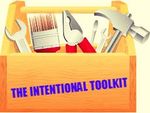On last week I shared an interview that I did with a teacher who works with Special Needs Learners in a phase II/self-contained classroom. During the interview, helpful information and strategies were shared to help educators, parents, and guardians be able to make math more meaningful to those children with severe learning disabilities. In this final post on this topic, I want to shine the spotlight on one type of math disability that does not get enough attention as it should. Dyscalculia is defined as a structural disorder of mathematical abilities caused by impairment to part of the brain used in mathematical calculations (Kosc, 1940).
While dyscalculia may be an unfamiliar term, today's researchers use other terms such as math dyslexia and math learning disability instead (please note that the term math dyslexia may be misleading as dyscalculia and dyslexia are not the same thing). Children that show signs of dyscalculia may have a difficult time understanding number related concepts such as quantities (i.e. biggest vs. smallest, etc.)
I have seen students who struggle with understanding that the number 9 is the same as the word nine. The struggling learners often have a difficult time recalling math facts and they also have a hard time holding a number in their mind while doing multi-step math problems. Although dyscalculia is certainly a learning disability, it looks different at different ages and research finds that it becomes more obvious as children get older. Below are bulleted points that highlight what dyscalculia looks like at every level in school:
Preschool
- Has trouble learning to count and skips over numbers long after kids the same age can remember numbers in the right order.
- Has trouble recognizing number symbols (knowing that “7” means seven).
- Doesn’t seem to understand the meaning of counting. For example, when asked for five blocks, she just hands you an armful, rather than counting them out.
Grade School
- Has difficulty learning and recalling basic math facts, such as 2 + 4 = 6.
- Struggles to identify +, ‒ and other signs, and to use them correctly.
- May still use fingers to count instead of using more advanced strategies, like mental math.
Middle School
- Has difficulty understanding place value.
- Has trouble writing numerals clearly or putting them in the correct column.
- Struggles to keep score in sports games.
High School
- Struggles to apply math concepts to money, including estimating the total cost, making exact change and figuring out a tip.
- Has a hard time grasping information shown on graphs or charts.
- Has trouble finding different approaches to the same math problem.
www.understood.org/en/learning-attention-issues/child-learning-disabilities/dyscalculia/5-tips-to-help-grade-schoolers-with-dyscalculia-learn-multiplication
mentalfloss.com/article/62436/11-facts-about-math-disorder-dyscalculia
youtu.be/nPw-fBKJ8lI





 RSS Feed
RSS Feed
